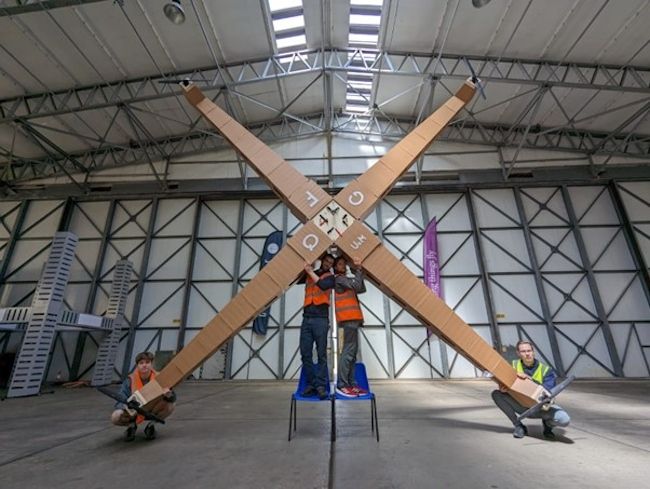Elevating Battlefield Medicine: The ATACT Drone Project
The ATACT project, backed by the Engineering and Physical Sciences Research Council (EPSRC), is pioneering the development of a flying drone poised to revolutionize battlefield medical response. With a focus on the critical "platinum ten minutes" post-injury, this £869,000 initiative aims to deliver swift and efficient assistance to the wounded, potentially saving countless lives on the battlefield. Scheduled for completion in January 2026, the project marks a significant advancement in military healthcare.
Professor Ardhendu Behera, an expert in computer vision and artificial intelligence, underscores the project's significance: "Upon completion, ATACT will emerge as a dependable autonomous system, operated via drone, empowering medical professionals to make informed decisions within the crucial first moments following an injury."
The project arises in response to the evolving dynamics of modern warfare, where traditional evacuation methods such as helicopters face unprecedented challenges. Dr. Heather Said from the University of Brighton's School of Architecture, Technology, and Engineering, explains, "ATACT represents a leap forward in drone technology and AI, promising broader applications beyond military contexts. We envision drones like ATACT aiding in disaster relief efforts and response to terrorist attacks, where rapid intervention is paramount."
The ATACT project entails four key objectives, each fostering innovation in AI and robotic autonomous systems:
Advanced Sensor Development: Initial efforts concentrate on equipping ATACT with cutting-edge sensors, enabling precise detection of injured soldiers through visual and thermal imaging, even across rugged terrain.
Data Collection and Analysis: Leveraging multimodal sensing and sophisticated algorithms, the research team aims to pinpoint soldiers' locations on the front lines and monitor their injuries and vital signs in real-time, facilitating efficient triage management.
Real-Time Communication: ATACT will provide medical teams with real-time updates on victims' conditions as they approach, streamlining resource allocation and prioritization to minimize response time and mitigate risks for medics.
Ethical Considerations: Throughout the project, the research team prioritizes adherence to the laws of war, medical ethics, and ethical guidelines governing AI and autonomy, ensuring responsible innovation in military healthcare.
By integrating advanced technology with ethical considerations, the ATACT project sets a new standard for battlefield medical response, heralding a future where drones play a pivotal role in safeguarding lives on the front lines.
Join the Future of Military Healthcare with ATACT!
Experience the forefront of innovation in military healthcare. Learn more about the ATACT project and its groundbreaking contributions to battlefield medicine!


















